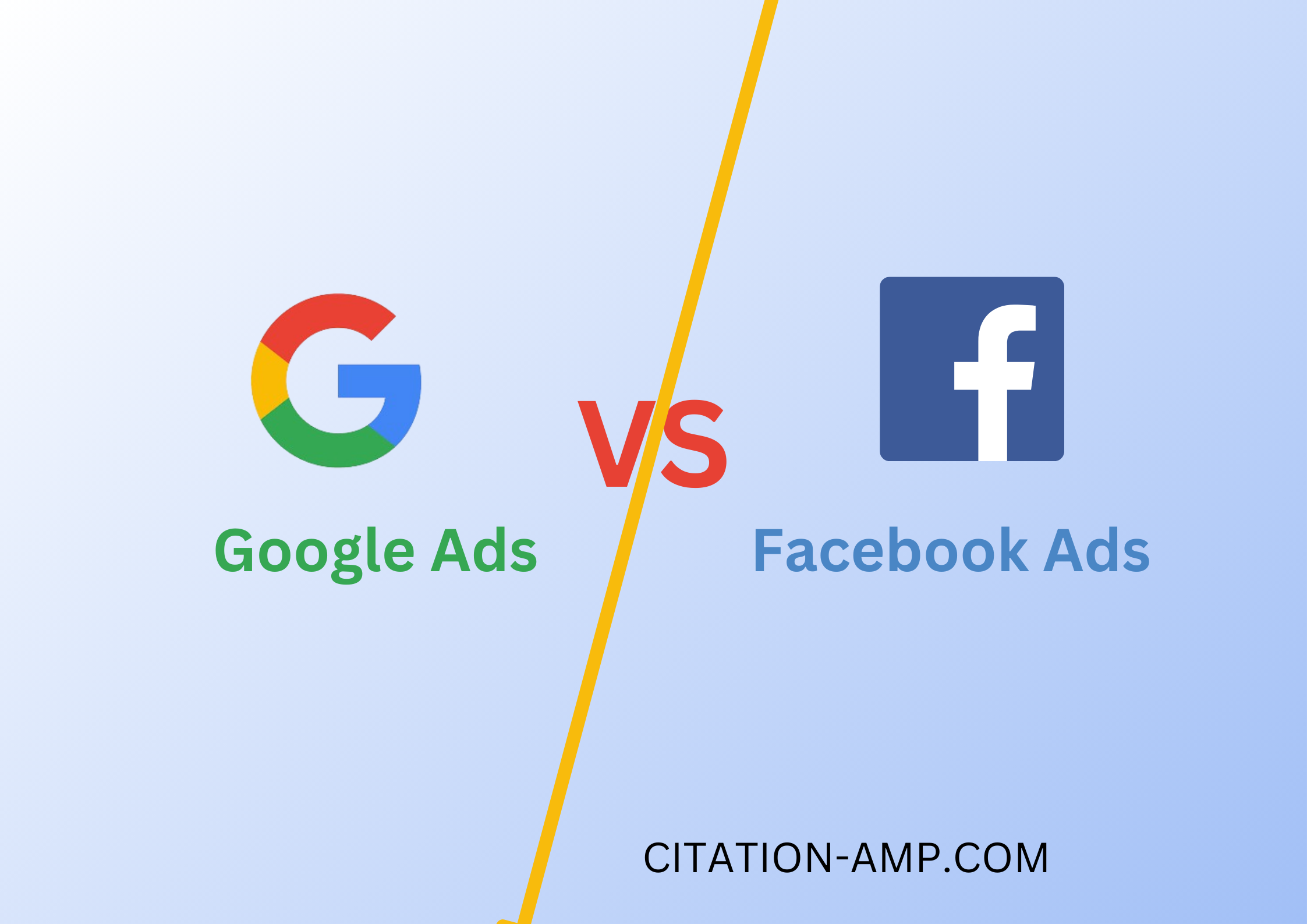In the digital marketing arena, the battle for online advertising dominance is a two-horse race between Google Ads vs Facebook Ads. Both platforms offer immense reach and powerful tools, but they target audiences in fundamentally different ways. Choosing the right platform between Google Ads and Facebook Ads depends on your specific business goals and target audience. This blog post will be your comprehensive guide, dissecting the strengths and weaknesses of each to help you make an informed decision.
Understanding the Core Difference: Intent vs. Interest
The key distinction between Google Ads vs Facebook Ads lies in user intent. Google Ads excels at capturing users with high purchase intent. People using Google are actively searching for information or products, making them highly receptive to targeted advertising tied to their search queries. On the other hand, Facebook Ads excel at sparking interest. Users browse Facebook to connect, be entertained, or discover new things. While not actively seeking to buy, they can be influenced by strategically placed ads that pique their curiosity and nudge them towards considering your product or service.
When to Choose Google Ads
- Goal: Generate Sales and Leads If your primary objective is to convert website visitors into paying customers or qualified leads, Google Ads is a strong contender. People searching for terms related to your product or service are expressing a clear buying intent, making them more likely to convert.
- Target Audience: Users with Purchase Intent Leveraging Google’s keyword targeting system, you can reach users actively searching for solutions your product offers. Targeting long-tail keywords with high purchase intent can be particularly effective.
- Product/Service: Clearly Defined Offerings Since Google Ads relies on keyword searches, it works best for businesses with well-defined products or services. Vague offerings might struggle to attract the right audience through search terms.
Strengths of Google Ads
- High Conversion Rates: Studies suggest Google Ads often boasts higher conversion rates compared to Facebook Ads due to the targeted nature of search queries.
- Measurable ROI: Google Ads offers detailed analytics, enabling you to track campaign performance and measure return on investment (ROI) with precision.
- Multiple Ad Formats: While primarily text-based, Google Ads offers various ad formats like call extensions and product shopping ads to cater to different marketing goals.
When to Choose Facebook Ads
- Goal: Brand Awareness and Engagement Facebook Ads excel at building brand awareness and fostering customer engagement. With a visually-driven platform, you can showcase your brand personality, connect with potential customers, and build a loyal following.
- Target Audience: Specific Demographics and Interests Facebook’s robust user data allows for highly targeted advertising. You can reach users based on demographics, interests, behaviors, and even life events, ensuring your message resonates with the right audience.
- Product/Service: Broader Appeal Products Facebook Ads are well-suited for promoting products with a wider appeal or those targeting a specific lifestyle or interest group.
Strengths of Facebook Ads
- Advanced Targeting Options: Facebook’s unparalleled targeting capabilities allow you to create highly specific audience segments, maximizing the impact of your ad spend.
- Brand Storytelling: The platform allows for creative storytelling through engaging visuals and video formats, fostering brand connection and emotional resonance.
- Retargeting Capabilities: Facebook Ads enables effective retargeting campaigns, reaching users who have previously interacted with your brand, increasing the likelihood of conversion.
Making the Right Choice: A Multi-Platform Approach
While both platforms have distinct strengths, the best approach for many businesses might be to leverage both Google Ads and Facebook Ads in a complementary way. Here’s how you can combine them for maximum impact:
- Utilize Google Ads for top-of-the-funnel brand awareness campaigns using broad keywords, then retarget those users with more specific Facebook Ads.
- Run Google Ads campaigns targeting users with high purchase intent, while simultaneously running Facebook Ads to build brand preference and trust.
- Leverage Facebook Ads to generate leads, then nurture those leads through targeted email marketing campaigns.
Additional Factors to Consider
- Budget: Google Ads can be more expensive depending on your industry and chosen keywords. Facebook Ads often offer a lower cost per click (CPC).
- Campaign Management: Both platforms require ongoing campaign management and optimization. Consider the time and resources you can dedicate to each platform.
- Team Expertise: A team with experience in both Google Ads and Facebook Ads can manage a comprehensive online advertising strategy.
Conclusion
Ultimately, the best platform for your business depends on your specific goals, target audience, and resources. Google Ads is a master at capturing purchase intent, while Facebook Ads reign supreme in sparking interest and building brand awareness. Consider a multi-platform approach to leverage the strengths of each platform and create a robust online advertising strategy. By understanding the core differences and aligning your strategy with your business
